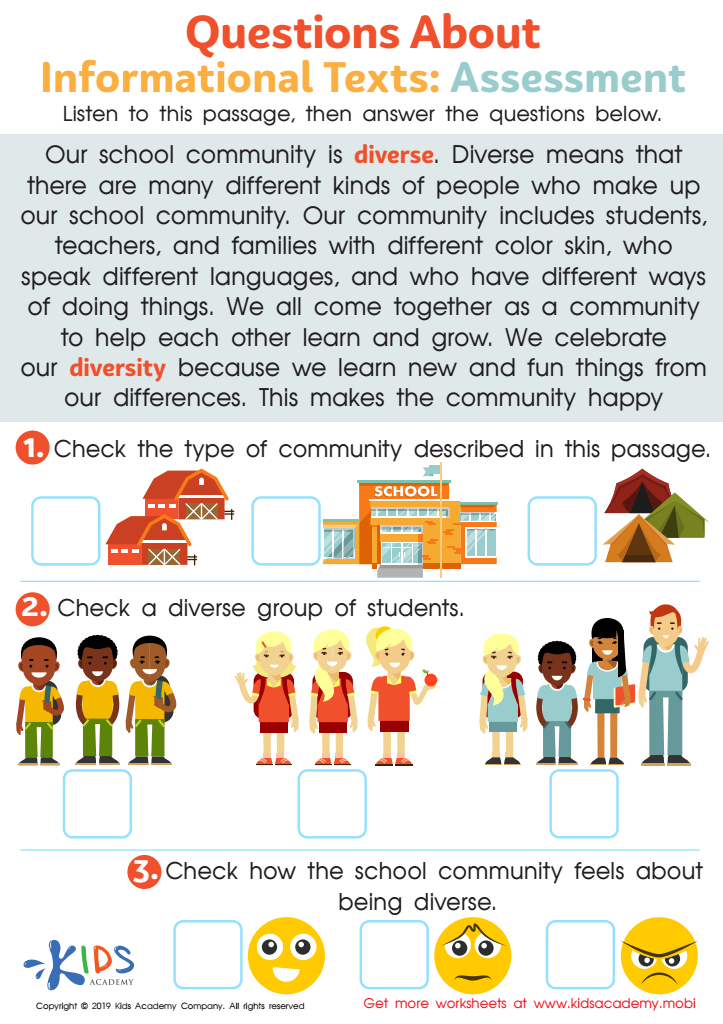Inferential thinking Worksheets for Kids
1 filtered results
-
From - To


Questions About Informational Texts: Assessment 1 Worksheet
Question/Answer
What are some effective activities to train students’ Inferential thinking skill when teaching them about Reading Non-Fiction?
Effective activities for training students in inferential thinking while reading non-fiction include: using graphic organizers to map out text details and inferred meanings, conducting Socratic seminars for deep discussion of text implications, utilizing think-aloud strategies to model the inference process, engaging in question-answer relationships (QAR) to distinguish between explicit information and inferences, and implementing close reading exercises focusing on analyzing text evidence to support conclusions.#$%
How to test a Kindergarten student’s Inferential thinking skills?
To test a Kindergarten student's inferential thinking skills, use picture books or short stories. After reading, ask them to predict outcomes, infer characters' feelings, or deduce the story's moral. Present scenarios requiring them to make logical conclusions based on given information. Use visual aids like illustrations to support their understanding and expression of inferred ideas.
How to train the Inferential thinking skill in Kindergarten students learning about Reading Non-Fiction?
To train inferential thinking in Kindergarteners during non-fiction reading, use picture books with simple facts. Ask predictive questions like "What do you think will happen next?" or "Why do you think this animal behaves this way?" Encourage them to explain their thoughts, helping them make connections between what they see and what it implies, gradually building their inferential thinking skills.
 Assign to the classroom
Assign to the classroom










